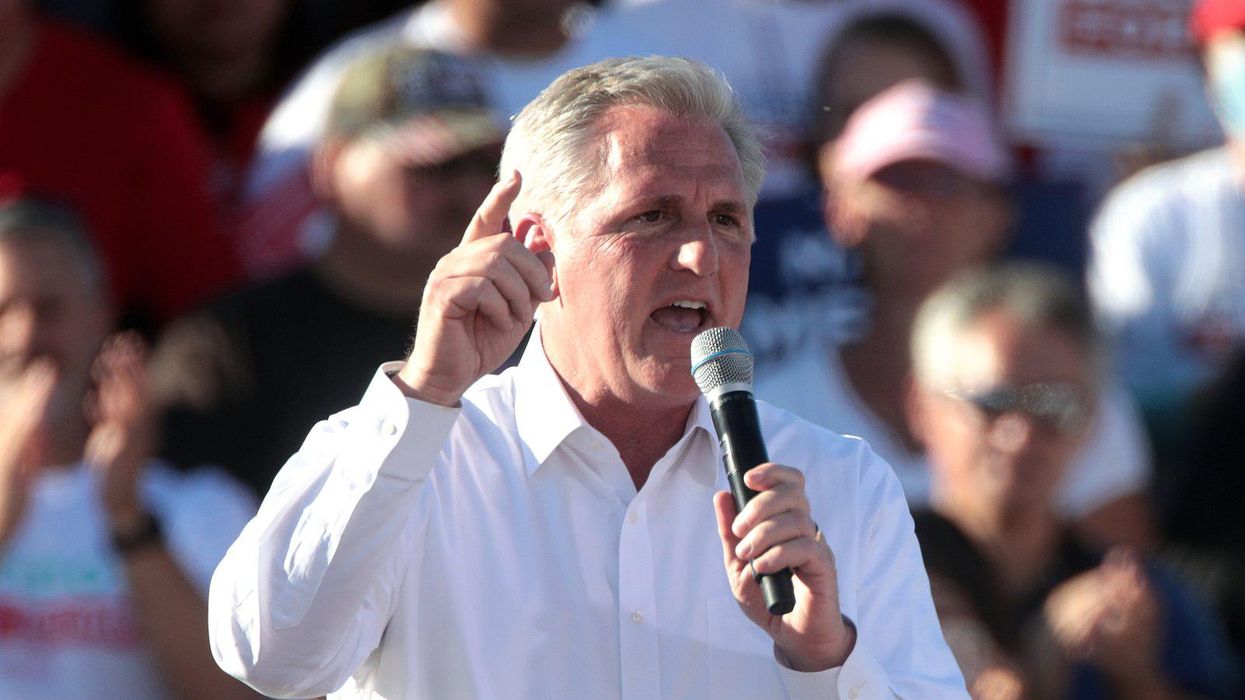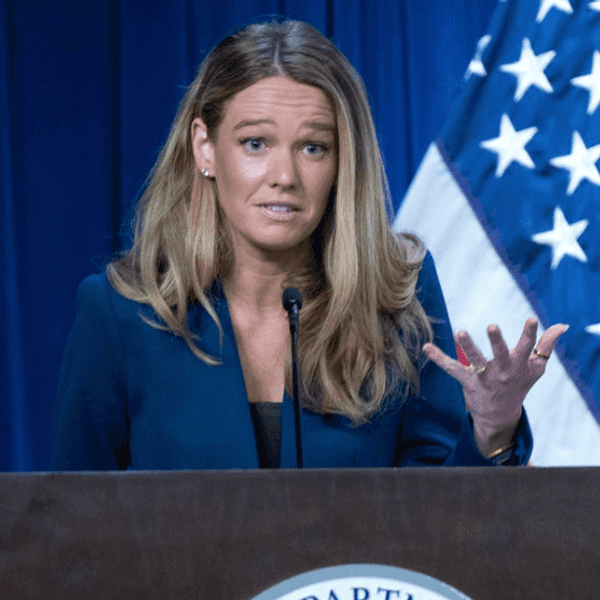
House Minority Leader Kevin McCarthy
Reprinted with permission from American Independent
House and Senate Republicans announced legislation on Tuesday to prevent anti-semitic hate crimes. But just a few years ago, the GOP strongly fought against hate crimes protections for other groups.
The new bills, backed by Minority Leader Mitch McConnell and Tom Cotton of Arkansas in the Senate and by Minority Leader Kevin McCarthy and Tennessee's David Kustoff in the House, would force the Justice Department to expedite review of hate crimes against Jewish people and raise the maximum sentence for repeat offenders.
It comes after a recent spike in reports of possible anti-semitic violence in the U.S. in the wake of deadly clashes between Israel's military and the Palestinian Islamic organization Hamas. The Anti-Defamation League noted a "drastic surge in anti-Jewish hate" in a May 20 statement.
The text of the new legislation notes that American Jews "have faced, and continue to face, false accusations of divided loyalty between the United States and Israel, false claims that they purchase political power with money, and false accusations about control of the financial system, along with other negative stereotypes."
Donald Trump perpetuated many of those anti-semitic stereotypes, claiming in August of 2019 that American Jews who voted for Democrats were being "being very disloyal to Jewish people and you're being very disloyal to Israel. And only weak people would say anything other than that."
McCarthy (CA) received widespread criticism in October 2018 for comments suggesting progressive donors of Jewish decent were trying to buy the midterm elections.
McCarthy and Kustoff both voted in February against stripping antisemitic Rep. Marjorie Taylor Greene (R-GA) of her committee assignments after she spread conspiracy theories about a prominent Jewish banking family using secret space lasers to cause deadly wildfires in California.
In a statement on Tuesday, McConnell (KY) said the GOP bill "will support state and local law enforcement and ensure the bigoted thugs and criminals who are attacking Jewish Americans face the full force of American justice."
"In the face of rising anti-Semitism, we cannot turn a blind eye. Jewish Americans deserve not just rhetorical support, but legislative action ensuring that perpetrators of these vile attacks are prosecuted to the full extent of the law," said McCarthy.
But as Democrats and a few Republicans pushed for years for legislation to expand federal hate crimes protections to include other targeted groups, such as LGBTQ people, McCarthy and McConnell and most of their caucuses fiercely opposed it.
Legislation first introduced in 2001 as the Local Law Enforcement Hate Crimes Prevention Act was finally enacted in 2009 as the Matthew Shepard and James Byrd, Jr. Hate Crimes Prevention Act.
Both McConnell and McCarthy voted repeatedly against the expansion of hate crimes protections.
Neither leader's office immediately responded to an inquiry for this story.
But as of Wednesday, McCarthy's website still includes a May 2007 press release opposing hate crimes laws of any kind.
In general, hate crimes legislation, including H.R. 1592 and H.R. 254, seeks to establish new offenses and special penalties for crimes motivated because of the victim's actual or perceived race, color, religion, national origin, sexual orientation, or gender. Such legislation has the potential to further perpetuate various racial, religious, and other social tensions, because of the perception of unequal punishment for committing the same crime. I believe we ought to punish all violent crime the same way, in a swift, tough and harsh manner.
McConnell fought the ultimately successful effort to pass the bill expanding protections against hate crimes to include LGBTQ people as part of a broader Defense bill, calling it "nongermane social policy."
After the 2016 mass shooting at the Pulse gay nightclub in Orlando, Florida, his office refused to say whether he regretted his opposition.
Published with permission of The American Independent Foundation.
- Suddenly, House Republicans Are Upset By Greene's Anti-Semitic ... ›
- 'Marjorie Is Wrong': McCarthy Feebly Pushes Back Against Greene's ... ›
- Jewish Groups Denounce Greene's 'Grotesque' Comment On The ... ›
- CPAC Promoted Virulently Anti-Semitic Conspiracist As Featured ... ›
- Top Trump Fundraiser Blasts Greene Over Holocaust Rants ... ›
- Why Republicans Are Turning Transgender Children Into Political ... ›
- Blinken Scraps Trump Administration's Global Attack On Gay Human ... ›
- Republicans Warn That Opposing Racism Is A ‘Communist’ Plot - National Memo ›
- Nashville Shop Selling Yellow ‘Not Vaccinated’ Stars That Mock Holocaust ›
- Biden Signs Bill To Expand Hate Crime Data Collection - National Memo ›
- Leader McCarthy, Rep. Kustoff Introduce Bill to Combat Anti-Semitism ›
- McCarthy Calls Out Marjorie Taylor Greene Over Holocaust ... ›
- Senate Passes Hate Crimes Bill : The Two-Way : NPR ›
- House Votes to Expand Hate Crimes Definition - The New York Times ›
- Claims of 'Homosexual Agenda' Help Kill Hate Crimes Laws in 5 ... ›
- Here are the members of Congress who voted against protecting ... ›
- McCarthy condemns Marjorie Taylor Greene's comparison of Covid ... ›








